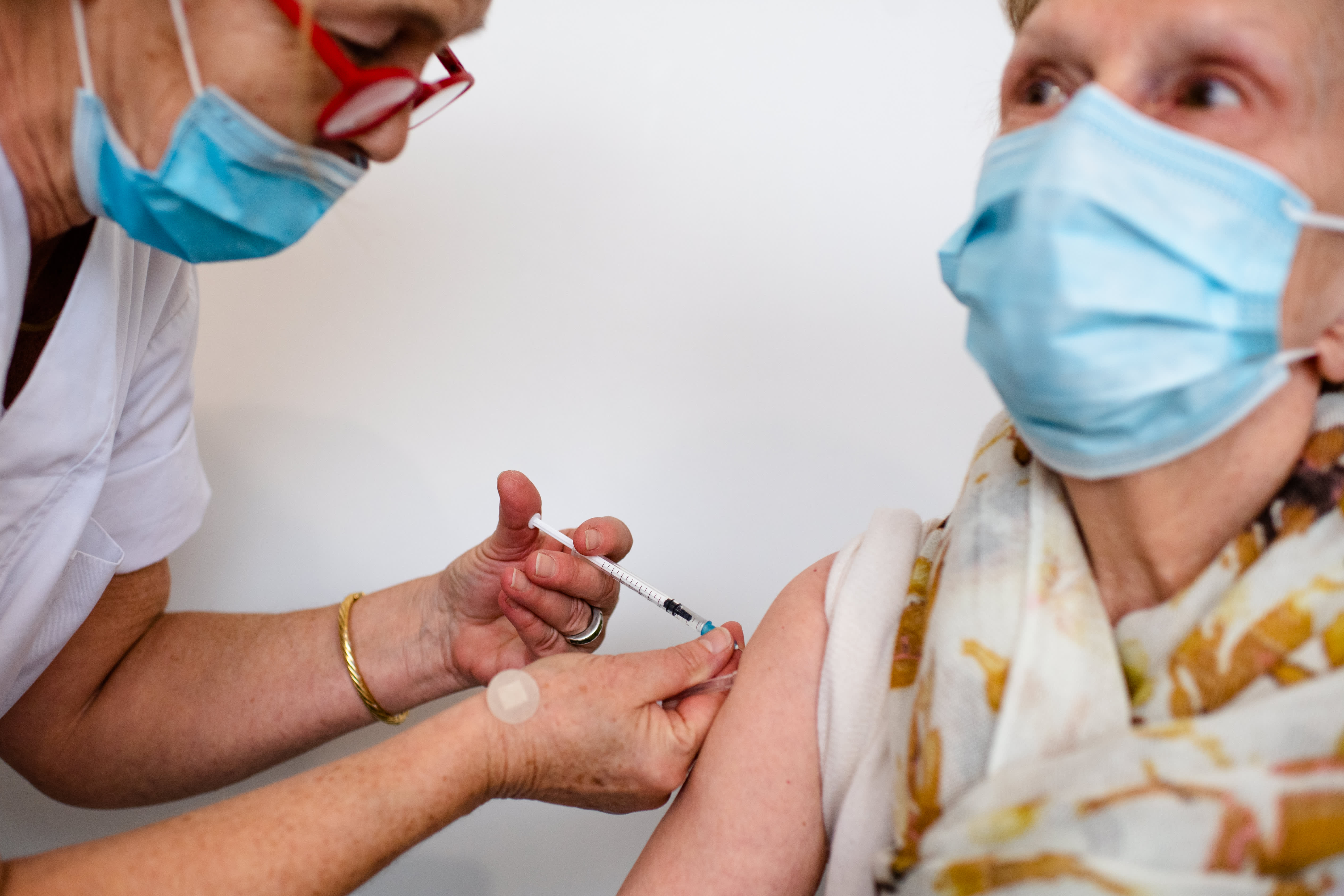
A nurse administers a dose of a Covid-19 vaccine at the Woluwe-Saint-Pierre vaccination center in Brussels, Belgium.
Jean-Christophe Guillaume | Getty Images News | Getty Images
LONDON – The European Commission on Wednesday unveiled new plans to restrict the export of Covid-19 vaccines from the 27-member bloc.
Officials are worried that pharmaceutical companies will miss delivery targets in the coming months. And the commission, the EU’s executive arm, wants to make sure member states get all the promised shots by the second quarter.
These vaccines will be essential to achieve the goal of vaccinating 70% of the EU’s adult population by the end of the summer.
“Although our member states are facing the third wave of the pandemic and not all companies are fulfilling their contract, the EU is the only major OECD producer that continues to export large-scale vaccines to dozens of countries. countries. But open roads should work in both directions, “European Commission President Ursula von der Leyen said in a statement.
The proposals are based on existing mechanisms and will introduce two changes where EU member states will consider “reciprocity” and “proportionality” with their exports.
They will now consider whether the destination country restricts its own exports of vaccines or raw materials and whether the destination country is ahead or behind the EU with its vaccine implementation.
AstraZeneca dispute
This tougher position from Brussels comes after suffering setbacks in the number of vaccines delivered by AstraZeneca. Earlier this year, the Anglo-Swedish firm said it could only administer 30 million doses of its vaccine, developed alongside Oxford University, in the first quarter instead of about 90 million doses. .
And, more recently, the pharmaceutical giant also cut delivery expectations for the second quarter to less than half of what the block initially expected.
The AstraZeneca feature is important for wider deployment in the European Union, because some countries favor it because it is cheaper and requires less stringent maintenance conditions, compared to others.
An EU official, who did not want to be named because of the sensitivity of the issue, said in a briefing on Wednesday that the new proposal “is not an export ban”. “There is a continuing deficit in vaccine production and there is also … an unfair balance when it comes to distribution,” said the official, who added that the idea is to bridge this gap and increase the supply of vaccines. balanced vaccines.
Von der Leyen already suggested last week that the EU consider controlling the vaccine tougher. He claimed at the time that while the EU had exported 41 million doses of Covid-19 shots since January to 33 countries around the world, some nations did not show the same level of reciprocity.
Commission data show that, since exports made so far, the UK has received more than 10 million doses; followed by Canada, which has received 6.6 million; and then Japan with 5.4 million.
“Not against the UK”
The renewed stance in Brussels could become a problem for the UK, which has been the main recipient of coronavirus shots produced in the EU so far, and where the vaccination rate is well ahead of the EU.
“It is not against the United Kingdom, but to ensure that AstraZeneca fulfills its commitments to the European Union,” Arancha González, Spain’s foreign minister, told CNBC’s “Squawk Box Europe” on Wednesday.
“The export restrictions for which we have prepared should never be contrary to the countries. They were intended to ensure that pharmaceutical companies meet their commitments, with the contracts they have made with the European Commission,” he said. add.
A UK government spokesman said on Wednesday: “We are all fighting the same pandemic: vaccines are an international collaboration of great scientists from around the world. And we will continue to work with our European partners to deliver vaccine deployment.” .
The commission announced in late January that member states would be able to prevent them from leaving the bloc when pharmaceutical companies fail to meet deliveries and when vaccines go to countries not considered vulnerable by the EU.
Wednesday’s new plans are based on that legislation. But the old rules will expire at the end of March.
The latest proposal will be discussed on Thursday by the 27 heads of state during an EU summit.
Earlier this week, Irish Prime Minister Micheál Martin warned of a tougher vaccine export policy, saying it could undermine the supply of raw materials for vaccine production in the EU. “I’m very against it. I think it would be a very retrograde step,” Martin told RTE radio.